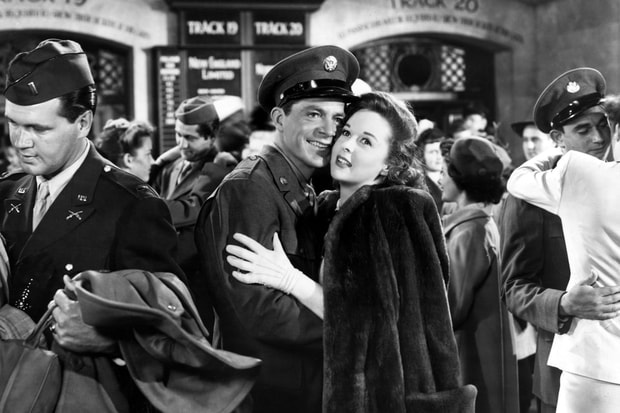And then there’s anything starring Dana Andrews, surely the cutest actor who ever graced the big screen and the son of a Baptist pastor, which may explain why he stayed married to the same woman for more than 50 years, until the day he died. No word on his spiritual life; his latest journalism-professor biographer clearly thinks “religion” is the height of foolishness, and doesn’t explore his subject’s most profound beliefs.
But even as I grow hungrier for glimpses of a happy past that surely point to a joyful forevermore, I find myself increasingly disturbed by the take-away messages of these movies.
One recent attraction was 1949’s My Foolish Heart, starring Susan Hayward, along with – you guessed it – Dana Andrews. In this movie, hard-drinking Hayward is stuck in a miserable marriage. We find out through the film-length flashback that she had become pregnant by her true love Andrews just before he was killed in the war. Then, to cover her shame, she married her best friend’s boyfriend. Hence, the miserable marriage. Although the heroine eventually pays for her moral failings with her self-inflicted misery, she brings the story to a close by pulling herself up by the bootstraps and doing what she sees as the right thing.
Movies like this one seem to have one critical theme in common: There’s no sign of God in any of them, no sign of an afterlife. You would think that, if she really loved the Andrews character in My Foolish Heart, the Hayward character would have explored the possibility of him still existing somewhere out there – and would have learned that Jesus is the way, the truth and the life, and that no one comes to the Father apart from Him. Then, on the hope that her true love had trusted in Him before dying, she could have pursued the Lord’s truth in the hope of being reunited with him for all eternity.
But sadly, the happy endings of this era, and this genre, offer only temporal happiness, with each character apparently staggering to a Christ-less eternity.
What a great example of what has gone wrong with the western world. True, it’s been underway for a long, long time; it was in 1889 that the old reprobate Oscar Wilde wrote, “Life imitates Art far more than Art imitates Life." But it’s clear that motion pictures have raised the influence of “art” on our culture, and individual lives, exponentially, with eternally tragic implications.

 RSS Feed
RSS Feed